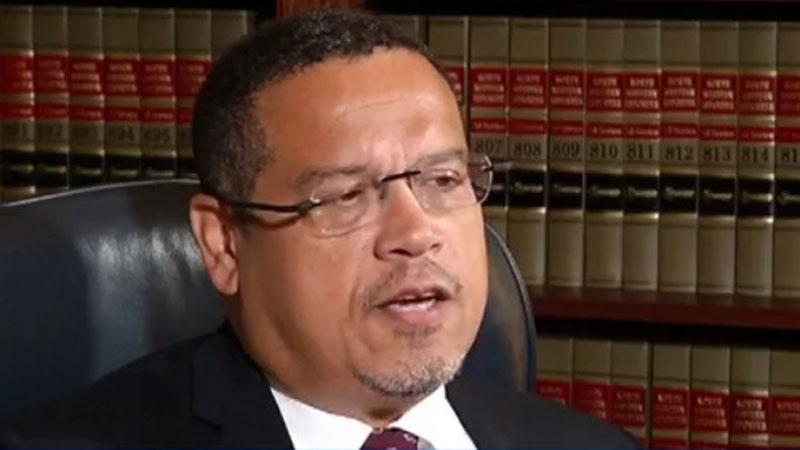AG seeks to further protect children who witnessed George Floyd’s death

Minnesota Attorney General Keith Ellison[KSTP]
Minnesota Attorney General Keith Ellison is asking the judge who oversaw former Minneapolis police officer Derek Chauvin’s trial to remove or modify some of the language used in the sentencing memorandum.
Ellison’s letter specifically addresses mentions of the children present during George Floyd’s death.
In Judge Peter Cahill’s sentencing opinion, he states he considered two of four aggravating factors in his sentencing decision — Chauvin’s abuse of a position of trust and authority, and his unusually cruel treatment of Floyd. Cahill stated he felt those factors justified a higher sentence.
Cahill states that the court concluded, although children were present, that fact did not present "a substantial and compelling reason for an upward durational departure."
In his letter, however, Ellison argues the wording used in the memo might minimize the experiences of the children present.
Ellison requests that the phrases "were free to leave the scene whenever they wished" and "were never coerced or forced by him or any of the other officers to remain a captive presence at the scene" be removed from the judicial opinion.
Ellison writes, "The State is deeply worried about the message sent by suggesting that instead of attempting to intervene in order to stop a crime—which children did in this case—children should simply walk away and ignore their moral compasses. Children should never be put in this position."
Ellison also argues the state disagrees with court’s assertion that the children present during the time of George Floyd’s death didn’t display signs of being traumatized at the time.
"The children’s emotional testimony at trial—including that one of them stays awake at night and another cannot return to Cup Foods—belies that conclusion," Ellison states, adding that the way the children responded at the time is immaterial. "Children process traumatic experiences in ways that may seem unusual to the untrained eye."
The suggested modifications to the order, Ellison writes, "will avoid the risk of sending the message that the pain these young women have endured is not real or does not matter, or worse, that it is a product of their own decisions and not a consequence of Defendant’s."